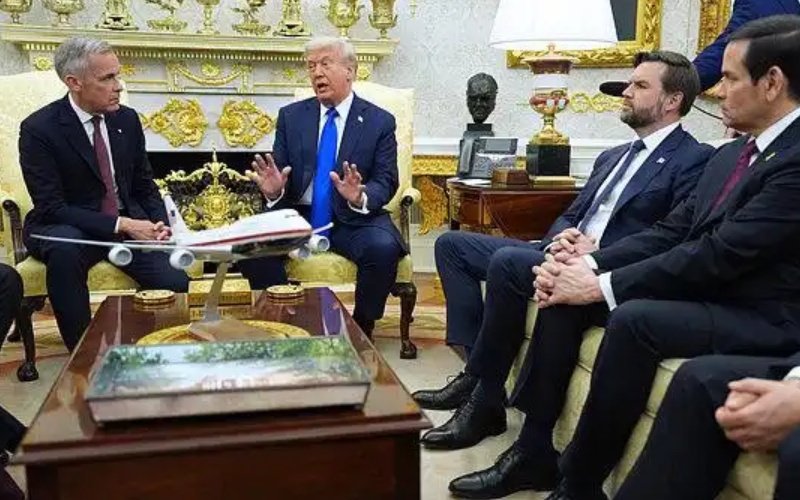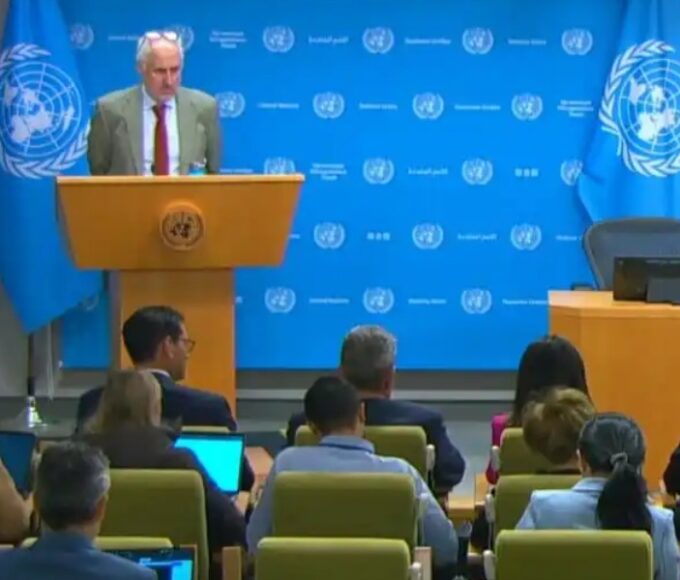On October 7 local time, U.S. President Donald Trump held a working meeting at the White House with visiting Canadian Prime Minister Carney, with trade and tariff issues emerging as the central focus. The two leaders reached a consensus, instructing their cabinet members to “reach an agreement swiftly,” with particular emphasis on the steel, aluminum, and energy sectors. Carney stressed that “Canada will seek a deal that benefits the United States — but of course, must also be good for Canada.”
Balancing Competition and Cooperation
During the talks, Trump candidly pointed out the inherently competitive nature of the two economies, saying there exists a “natural business conflict” between the United States and Canada. “The core issue now is that both sides want to attract key industries such as automobile manufacturing and steel production,” he said, adding that such competition often places the two nations in a position of mutual restraint. Trump further noted that “American consumers tend to prefer domestically made cars — that’s a market-based reality,” clearly underscoring the direct competition between the two countries in the manufacturing sector.
In response to the competitive tone, Carney adopted a pragmatic diplomatic approach. He emphasized that Canada is not only the United States’ second-largest trading partner but also its largest source of foreign investment. Carney revealed that Canada has invested 500 billion Canadian dollars in the U.S. over the past five years, and if the two sides can reach the expected agreement, future investments could reach 800 billion Canadian dollars over the next five years.
Divergent Views on Tariff Policies
On the core issue of tariffs, President Trump’s remarks appeared notably contradictory. On one hand, he stated that the U.S. would “discuss reducing tariffs on various Canadian industries.” On the other, he firmly declared that “the United States will impose tariffs on Canada,” adding that “Canada will be very happy to accept them.”This conflicting stance highlights the complexity of U.S.-Canada trade relations. Currently, the United States imposes tariffs on Canadian steel, aluminum, automobiles, and lumber, and has raised duties on products that fail to meet USMCA (United States-Mexico-Canada Agreement) standards from 25% to 35%. These trade tensions have already led to a decline in Canadian manufacturing investment and resulted in economic contraction in the second quarter.
In response, Prime Minister Carney announced in August that Canada would lift most of its retaliatory tariffs against the United States, maintaining only countermeasures on steel, aluminum, and other products targeted by U.S. sanctions. This move was widely seen as a diplomatic gesture aimed at creating a more favorable atmosphere for the latest round of talks.
Outcomes and Future Prospects
Notably, Canadian media observed that Trump did not instruct his cabinet to “finalize a deal.” This detail suggests that future negotiations could remain uncertain. Beyond trade, Trump also announced that the United States and Canada would cooperate on the U.S. “Golden Dome” missile defense program — a statement signaling deeper defense collaboration and a shared effort to build a joint missile defense system.
Trade officials are expected to remain in Washington to continue negotiations on agreements covering steel, aluminum, and energy. Although Trump stopped short of ordering a deal to be concluded, both leaders made clear their desire to find mutually beneficial solutions. As Carney put it, “In many more areas, our two nations can move forward together.”The meeting marked a new chapter in the search for balance within the complex trade relationship between the two neighboring countries.












